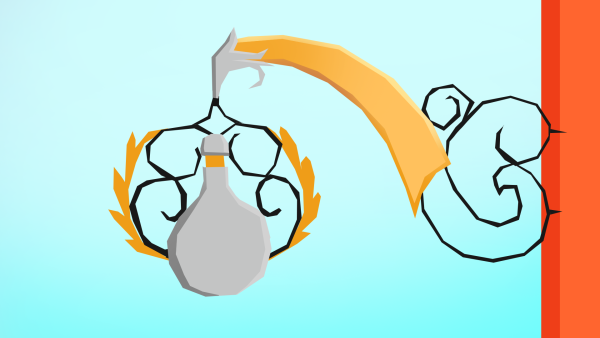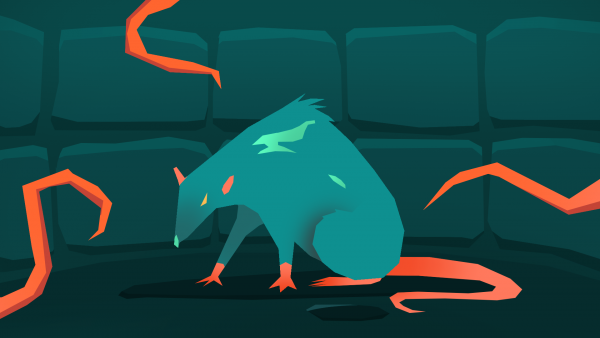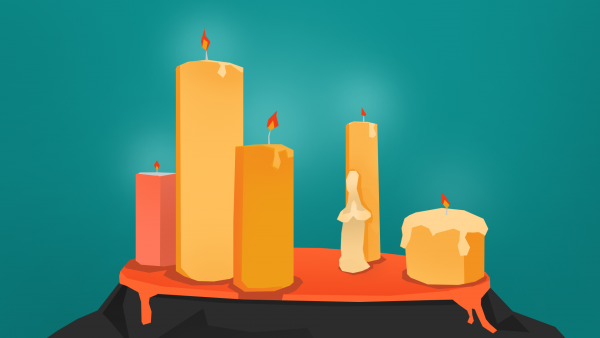Religions shape cultures, economies, start and end wars, build and destroy kingdoms, and change worlds. When worldbuilding religions, you must consider these nine topics.
Religions often add a sense of realism and depth into your world. While creating a whole new religion is a huge task, I think it can be broken down into, more or less, nine steps.
Keep in mind that every religion is different, every world is different, and every worldbuilder is different. These nine steps might not exactly apply to you and your world. However, I’d say it’s a good start, if you have no idea how to create religions in worldbuilding.
Origins of Religions
Religions are often formed in one of two ways. Either it is a more organized version of long-term tradition, or it can be traced to one charismatic leader (or a small group).
As traditions get engraved into the culture, people start weaving legends and myths around them. A monthly feast around the fire that was initially meant to bring the village closer together turns into a sacrifice for the god of the hunt.
In the case of the charismatic leader, this is where a religions forms around one person or group of people with devout followers. Probably the main example of this is Christianity.
Of course, these two types of religions are only applicable if the religion isn’t provably real. If there’s a god that gives food to the villagers each month, the religion is going to be formed around that god – not around a set of traditions or a charismatic leader.
Values
What the followers of a religion value is going to influence everything else about it. Does the religion value kindness over wealth? Is good better than evil, or should there be balance?
Maybe the religion puts gender roles above everything else. Maybe the followers preach that genders are equal. War might be shunned upon, or it might be the most important thing in the religion’s values.
Is family valued? How important is the faith in the religion’s eyes? Maybe the followers are more important than the religion itself – meaning if a follower was asked to convert or get executed, it would be okay for them to convert.
Write down a list of three of the most important values for the religion. Refer to that list often, and make all the next decisions with that values in mind.
There’s a worksheet at the end of this article you can download to make it easier for you to keep everything organized.
Influence and Evolution
Beginner worldbuilders often make one major mistake (I’m also guilty of it). It can be applied to almost everything, including religions.
The people change, the culture evolves, and this change consequently influences the religion. Over generations, the religion is going to change, its followers’ rituals are going to grow, some smaller groups within the religion might die out, etc.
Never forget that the people influence the religion as much as the religion influences the people.
High Religion
A religion is going to be different for various classes of people. When worldbuilding religions, it’s important to consider both the high-level religion, and the day-to-day religion.
When creating the high religion, think about the values you set before at the purest level. Here, these values are going to shine through over anything else. This is where the holy books will be written, where the commandments will be decided upon, and where the most noble and powerful followers of the religion will be.
Because these people have power, they don’t have to worry much how their religion works in the day-to-day life of the average person. This religion will be very pure, without much compromises.
Day-to-day Religion
On the other hand, this is the version of the religion for the average person. They do not know the holy book by heart, they have to compromise because of the harshness of life, and their values are tested each day.
People on this level of the religion will try to uphold the core values as much as they want, but they also have to try their best to live and survive. If the religion calls for sacrificing a piece of meat to the gods every day, a peasant might not be able to do this during winter, when food is scarce.
Likewise, they will not have memorized all the commandments, or the holy sayings of the religion’s prophet. They try their best to implement the high version of their religion into the day-to-day life. This, naturally, comes with compromises.
Real vs Fictional Religions
In this case, I’m not talking about comparing real religions like Christianity or Hinduism, with fictional ones. By “real religions”, I mean religions that are provably real within your world. Fictional religions are the ones that are not provable, but people still believe in them.
When you’re worldbuilding real religions, it’s important to consider how much do the gods, deities, spirits, and other parts of the religion interact with people. Did they gift them technology 1000 years ago? Maybe they still talk to the religion’s leaders. Or they could have a more practical relationship with the people – trading resources, sharing powers, etc. This is wholly up to you, but keep in mind that this will, as always, influence the culture.
Fictional religions are different in that the followers don’t have clear evidence of the subject of their faith. In this case, make sure the followers get something from it – it can be physical, like wealth, social, like a higher status, or spiritual, like a pleasant life after death (according to their beliefs).
Gods & Deities
First things first, remember that not all religions need gods. It’s perfectly fine to have a religion that’s just a belief in a value, in a way of living, in an afterlife, without actually having gods, spirits, mythical creatures, and deities.
If you do want to include gods in your religion, make sure they mirror the values the people believe in. Some areas of your world might worship some gods more than others – because their particular part of the culture values the things the god stands for more than others.
Symbols
Some religions have their symbols, which can be worn as jewellery, it can be the way other people recognize the followers, etc.
When creating the symbols for your religion, make sure to refer back to the values you set earlier. Look at the history of your world, and how the religion interacts with other parts of the world. Consider if any of the symbols might represent the origin of the religion.
Check out Emily’s article on RollForFantasy – she gives some great examples of symbols in religion in her 3-part series on religions.
Magic System
In a lot of cases, if your religion is real, your magic system can be based on it. Gods can give out powers in exchange for worship. Spells can be cast by prayer, or spirit familiars might be summoned.
If you’re considering basing a magic system on your religion, make sure to follow the guidelines of worldbuilding magic. You can check out my article on magic here.
It is also not uncommon for this to be the other way around – a religion, based on a magic system. Maybe the people believe their magic comes from the gods, while it’s actually coming from a wholly different source.
Conclusion
Religions can shape your cultures out, and give your world additional depth. When worldbuilding religions, remember to set its values early, and base almost everything else off of that.
If this seems complicated to you, check out my Fiverr profile, where I can help you with your worldbuilding.
If you have enjoyed this article, I’d love to invite you to the Eledris Discord server, which is a growing community of worldbuilders and other artists. Here’s the invite link.
Finally, as I promised, you can get the religion worldbuilding worksheet in the Exclusive Resource Library – get the access by signing up for my email list below.


